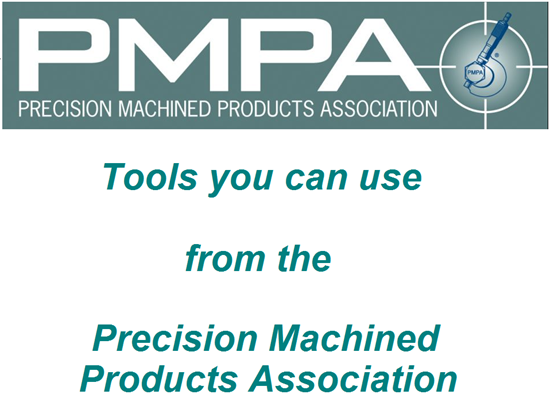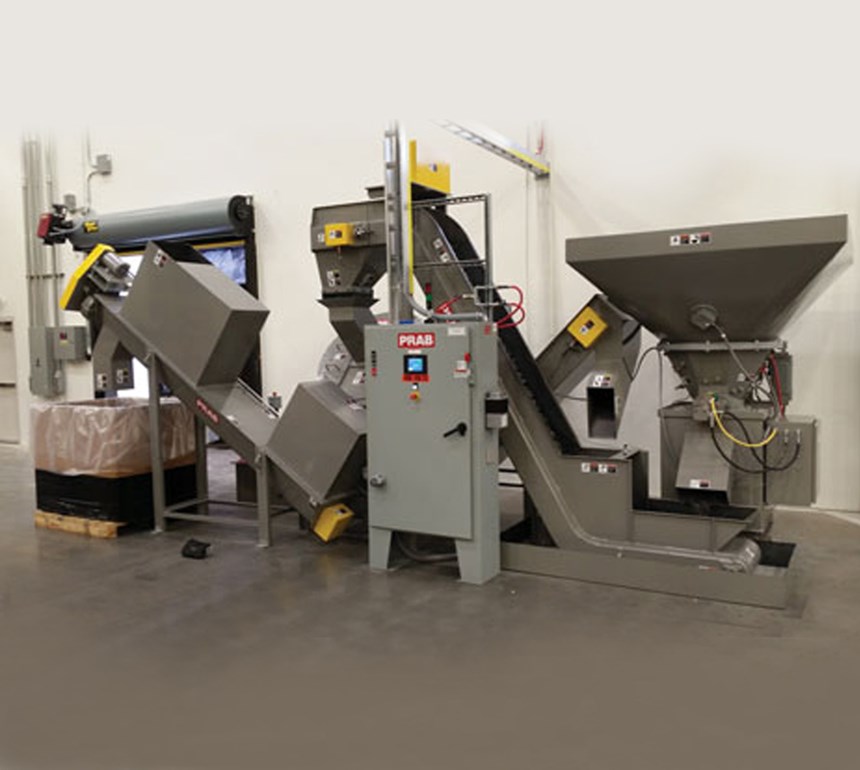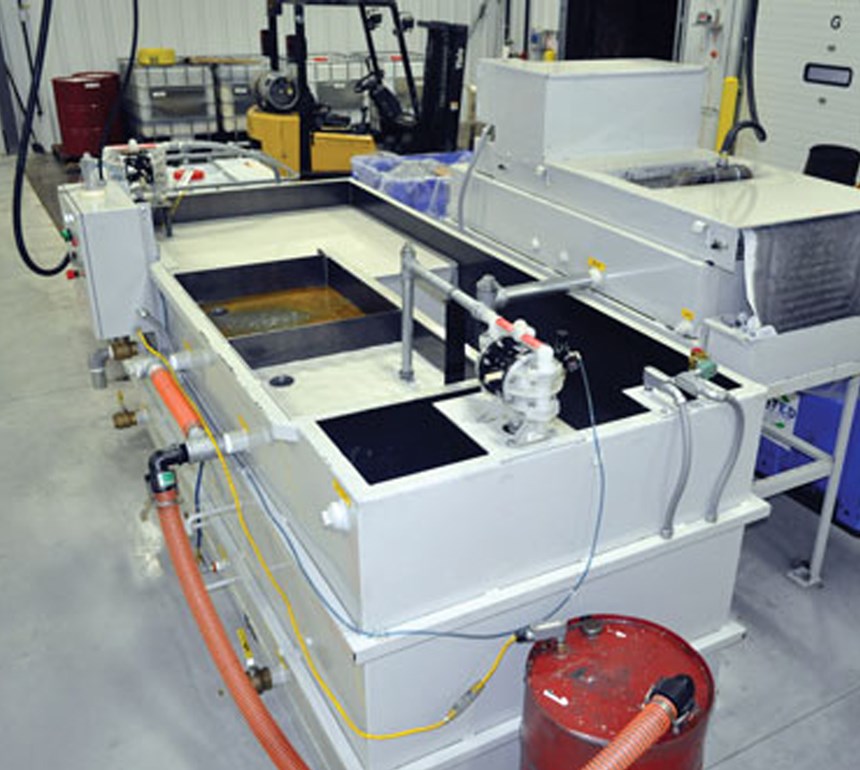PMPA Member PRAB Finds Success in Diverse Product Offerings and Zero Outsourcing
Currently, PRAB builds more than a dozen different types of conveyors, including steel belt, shuttle, oscillating, magnetic, harpoon and push-bar.
Following World War II, Peter Ruppe and Alan Bodycomb saw the need to improve manufacturing methods, specifically the removal of scrap metal, which was shoveled away by hand. In 1950, the two founded PRAB in Detroit, where they began engineering and manufacturing industrial conveyors and chip processing systems to serve the automotive industry. Years later, PRAB moved its headquarters to Kalamazoo, Michigan, where it, in addition to automotive, serves the aerospace, construction, recycling and virtually any industry in need of conveying and processing scrap metal or cutting fluid filtration.
“The fact that we’ve been engineering equipment for more than 65 years, coupled with our quality fabricating team, has given us a great advantage,” says Mike Hook, national sales manager at PRAB. “PRAB has grown from a small, custom manufacturer of conveyors and equipment, to the industry leader for metal scrap processing equipment and systems.”
Featured Content
Currently, PRAB builds more than a dozen different types of conveyors, including steel belt, shuttle, oscillating, magnetic, harpoon and push-bar. The company also reinvented the process of managing metal turnings and collecting fluids by engineering two new system concepts. A modular, multi-stage system for high-volume scrap loads, and a skid-mounted chip system for small-to-medium volumes of scrap. Both systems automate scrap metal processing, and the systems were designed to be installed in only a few hours; in the case of the larger modular system, installation takes weeks. Typically, installation and start-up time would be measured in weeks and months. PRAB’s systems create a centralized processing solution for a plant dealing with metal turnings and cutting fluids.
“Modular systems can be quickly installed and moved if the plant layout needs to change,” Mr. Hook says. “They arrive as a plug-and-play solution; pre-wired, tested and programmed so they do not require an extended period of time for installation.”
One of the biggest issues facing the precision machining industry is the problem of outsourcing parts and labor overseas. While PMPA has given a great deal of effort in lobbying to keep jobs and manufacturing stateside, outsourcing is not an issue for PRAB and its 110 employees. Each facet of PRAB’s operations occurs within its two Kalamazoo facilities. In fact, Mr. Hook says the company will
complete renovations on a larger manufacturing facility to allow all PRAB divisions to operate under one roof by the end of 2016.
“We are a privately held company, and we believe that PRAB should be more of a family atmosphere, and we have made the strategic decision to keep our production in Michigan and build everything in-house when possible,” Mr. Hook says. “We’ve got total control over our processes, so we can have total control over our quality.”
As a PMPA member, Mr. Hook says PRAB benefits most from the number of different networking opportunities the organization offers. A big part of PRAB’s business stems from high-volume production manufacturers, so PMPA provides an easy outlet for the company to be face-to-face with its end users.
“We serve the industry more than we are in the industry, so it’s a good medium for us to get our information in front of the people who need it,” Mr. Hook says. “If you look at that list of members, it’s kind of a ‘Who’s Who’ of machining companies in the country, and I think that speaks volumes for PMPA.”PRAB Inc. is located at 5944 East N. Avenue, Kalamazoo, Michigan 49048








